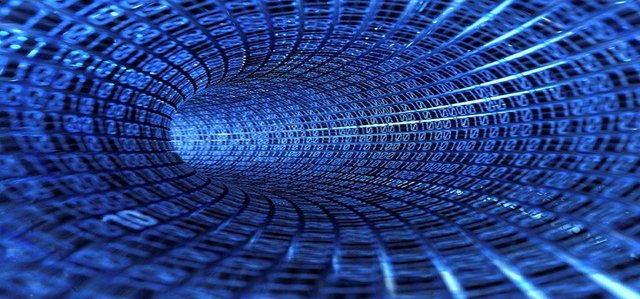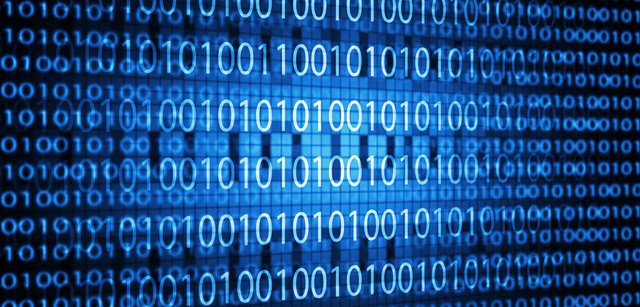Information Science – What the Hell Is Information?
Articles from this series
- Information science - Introduction
- Information science – Uniqueness and essential questions
- Information science – Philosophical approaches
- Information science – Paradigms
- Information science – Epistemologies
Main source
Introduction to Information Science - DAVID BAWDEN and LYN ROBINSON

Information

Lately terms like “information age” and “information society” are being ever-increasingly used. Who among us can though say, with clear conscience, that you know what information is? For several decades information scientists have been dealing with this term. During that time the word has been used in more than 10 000 cases differently. In this article I’ll present two main point of views that are being currently used when regarding information and numerous definitions that have been created under the banner of Information science.
Information physical and biological

The term information as “attribute of the physical world” originated when the entropy has been studied. Entropy is scale of disorderliness of the physical system, whereas information is the data about how any given aspect works. Entropy occurs, when not enough information about any given aspect of the physical world is gathered. In other words, there is formal mathematic relation between information and entropy. Information is supposedly fundamental aspect of physical universe. It is not energy, nor matter. Wheeler thinks that “bit” was prior to the energy and matter. If that was the case the physical world (energy and matter) would be generated by the information in the very “core” of everything.
Very similar approach has been taken in biology. The discovery of genetic code and successive advancement in molecular biology has led the scientists to an opinion that information is more fundamental attribute of the living organism that for example metabolism, reproduction and other manifestations of life.
Mathematical theory of information

This theory originated due to the technical problems during transmission of message through various communication networks. Whereas the theory above deals with the information “empirically”, which means that the transmission happens in the physical world (and thus we try to measure it trough physics, chemistry and biology), this theory takes the syntactic approach – meaning that the used language and codes are being studied. Both of the theories ignore the semantic approach (what the message is trying to convey) and pragmatic approach (in which context the message is relevant to the receiver of the information).
The mathematical theory is also called Shannon-Weaver theory. First the quantitative extent of the information had to be revealed, so the comparison of several transmittal systems could have been done. The extent of the information understood in this way has then been counted as a logarithm of all the possible arrangements of the codes. (Sorry I don’t know how to type the logarithmic E and internet was of no help to me…all of you that understand mathematics will probably get it :P)
Pi is the probability of every symbol. K is the constant defining the unit. – is there because we want the quantity of information (H) positive. The probability of each symbol is always below 0, which would lead to the outcome being negative otherwise. Shannon has called the H “the entropy”.
Numerous definitions of information

Brookes “Scrappy knowledge”
Floridi “Meaningful data”
Feather “Summary of data in comprehensible form suitable for communication”
Shannon “Communicated codes”
Belkin “Alternation of the structure”
Bateson “Difference that makes the difference” (lol)
Bates “Certain structure of organisation of the matter and energy to which the meaning is being lend by a living being”

You're obviously far more informed on the subject than I am, but I've always thought the best way to learn is by asking stupid questions to smarter people......
The problem that I have with mathematical and physicalist definitions of information is that they shift an enormous amount of the explanatory weight onto the question of relevance - an issue which they then seem to blackbox for another field, another day.
Unless the relevant information is somehow sifted from the irrelevant information (relevant from the perspective of the receiver/interpreter) then I don't see how the mathematical model really gets us anywhere all that deep and interesting.
Yes, these equations are VERY useful for syntactical coding and condensing of messages, but it doesn't have much to say about the meaningful, semantic information expressed by the message itself that is being coded and condensed.
If by smarter you mean more knowledgeable in any given subject than it is a really good way how to learn stuff, but I probably wouldn’t go as far to say that it is the best one :P.
Do you mean that they ignore the relevance and context? In that case yes. It's story not for another field, but different paradigm or epistemology for different day. Do not try to rush things young padawan. One step at a time! (will be further explained below)
The information on its own is not irrelevant for some fields. It has helped and increased the speed in which internet grew all around the world in the (more, or less) efficient way it works up to date. It has also helped the cryptography and by that helped to unable the birth of cryptocurrencies. Now that is fucking relevant and deep to me even though it was all made possible (or just its origination was accelerated) due to (using your words) model that lacks the relevant information, therefore won’t get us anywhere deep. Just because the information lacks the contextual meaning doesn’t mean that the technical data cannot be used effectively. You’re correct that hashing and decoding and other cryptography stuff needed something “else” to work, but without the first steps there wouldn’t be the next ones, or they would lack the background and such a model would need to be “researched” retrospectively.
I see that you didn’t have a problem with the biological model. Is it because you sniffed Darwin in there? :P If that was the case you were correct. :D
"I see that you didn’t have a problem with the biological model. Is it because you sniffed Darwin in there? :P If that was the case you were correct. :D"
Bingo!!! While I'm not totally sold on teleosemantics, their more Aristotelean approach (as opposed to a more mathematical, Galilean approach) to form and information has very strongly influenced my own thoughts.
Either way, I appreciate the feedback!
Highly rEsteemed!
You are highly thanked!:D